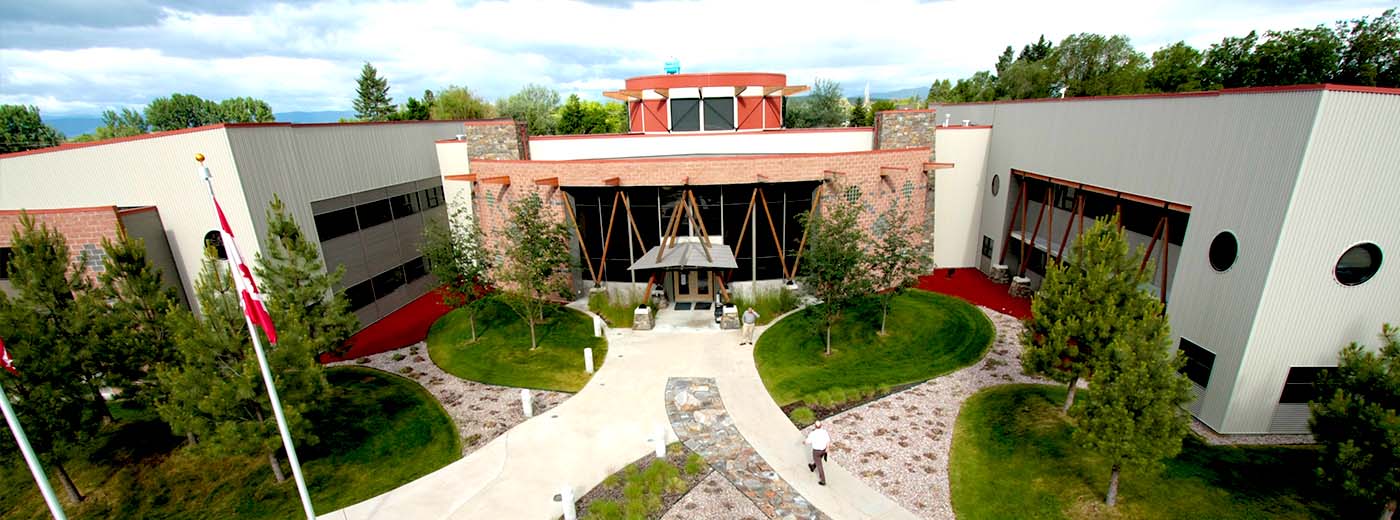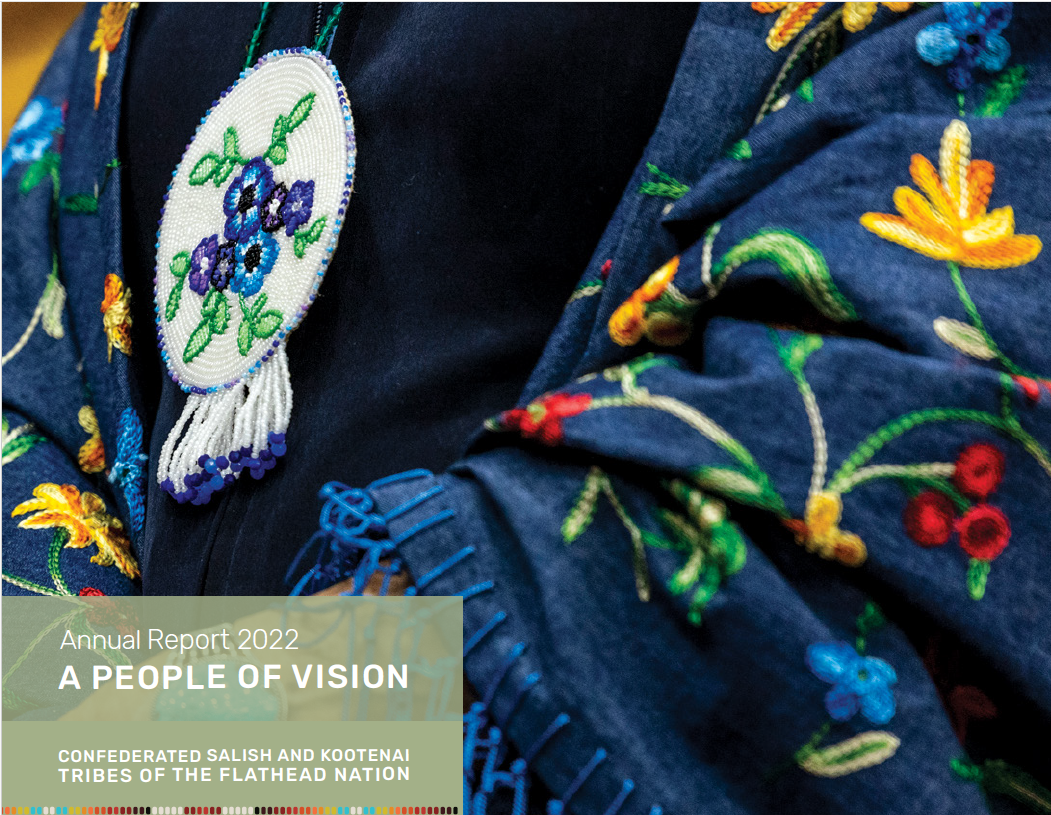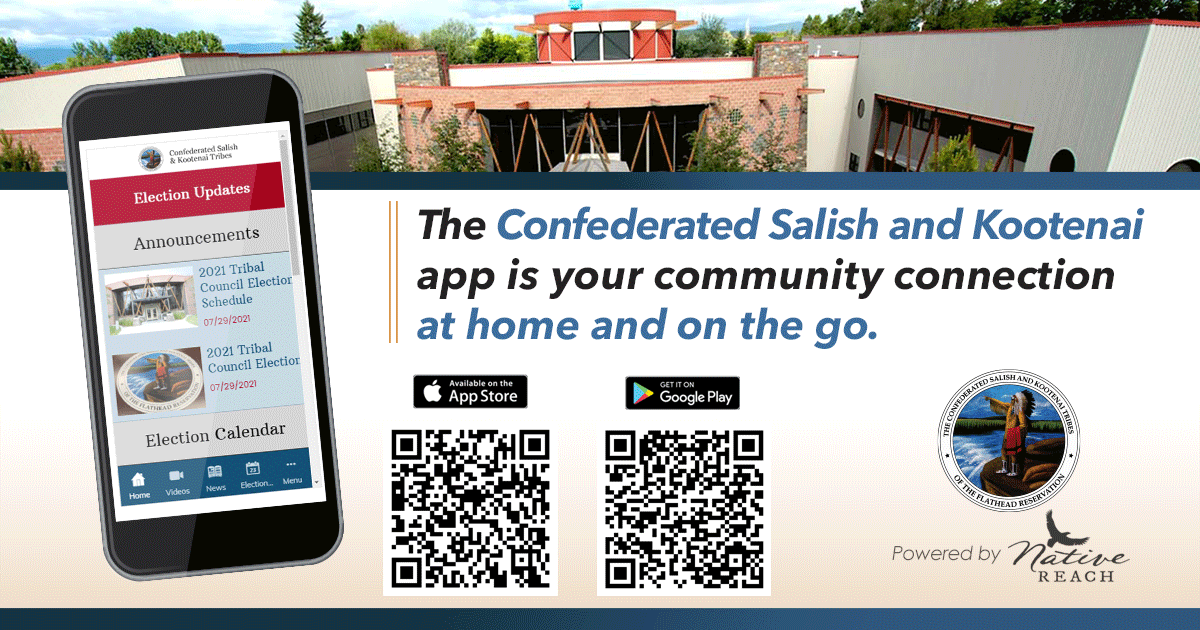Council Dispatch #144 February 16, 2023
Tribal Council
- Bing Matt and Jim Malatare gave a report on the Arlee district meeting. Topics covered at the meeting included the dump, a report on the water settlement, groundwater study, and the Jocko K Canal, questions about the home repairs applications and process, the gravel pit for Riverside Contracting and request for the CSKT to write a letter to the Montana Department of Environmental Quality opposing the permit, and water concerns for a proposed garden in Arlee. Council will discuss the issues at the chairman’s meeting.
- Martin Charlo gave a report on the Salish Pend d’Oreille Culture Committee meeting with the Bureau of Land Management and the Elders to discuss co-management of our aboriginal territories and the Blackfoot watershed.
- Chairman McDonald reminded council of upcoming meetings.
- The Election Committee needs to be finalized. The council had agreed to have a member of the legal team serve on the committee. There was a proposal to have a citizen’s committee with one council representative. The other proposal was to have the five council members who are not up for election and one legal representative. Council will discuss further at the chairman’s meeting next Monday.
- There is an active shooter training next month, and Len TwoTeeth would like it to be an annual event. There is an opportunity for the staff to engage LSU to provide a free training to the Tribes. Len wants the Executive Team to start the planning process for the training to be offered to all tribal employees and the tribal council. It was the consensus of council to have the Executive Team start planning for it.
- Chairman McDonald would like an update from Dale Nelson. Most FEMA plans focus on the Highway 2 route which is upstream from us. There has been a lot of derailments in the Columbia Falls/Middle Fork of the Flathead area. There is a lot of product hauled on that route.
- Chairman McDonald sent the council an email regarding work experience and vocational training, and he asked them to review the draft and provide any input. Salish Kootenai College will be having their retreat soon and Tom wants to give them this information.
Tribal Member
- William Webster discussed a lease he has had since 2005. He put in 3,000 trees and his 14 year-old trees are now up against water issues. The wells went dry in 1991 and they were forewarned by a hydrologist that it is an aquifer that has problems and that Girt Ditch would be reopened, but it was never reopened. 5 wells went down in that area in one year. Having no water will be devastating to his trees and they will be affected severely. The Legal staff have been working internally with the DEWR and Lands team to come up with a process to use the Flathead system compact water. Legal will communicate the urgency and council’s wishes to have some options by March 1, and the team will continue working towards that goal. The Lands staff have been working to identify some options that William can potentially be doing, but it must go through the Unitary Water Management Board. It was the consensus of council to move forward as outlined.
Salish Kootenai College Press
- Council received a presentation on a proposal for the publication of a manuscript titled A Confluence of Sovereignty and Conformity on the history of the Mission Mountain Tribal Wilderness Area. The Blue Bay and concluding chapter need to be updated and some of the tribal employees need to be interviewed. The final manuscript will be presented to the council. All manuscripts are available online. It was the consensus of council to proceed as outlined.
Tribal Health Department
- Council approved by resolution the submission for the RMTLC 18NU38OT000275 (ABHD) project funding for a $25,000.00 grant to support the Tribal Health Department’s continued efforts against COVID-19. The funds would be used for data management and staff training on reporting tools.
Community Engagement
- Representatives from Community Engagement gave a presentation on Montana’s Multi-Hazard Mitigation Plan. The CSKT Tribal Pre-disaster Plan was completed in 2016 and 10 hazard mitigation goals were identified. The plan included mitigation goals, priority ranking, jurisdiction, and funding sources. The purpose for developing a plan is population and community growth, more hazardous events, and increase in hazardous response and recovery costs. There are grant monies available to pay for mitigation costs. The Disaster Mitigation Act of 2000 requires communities to have their plans updated every five years. CSKT can adopt the State’s plan if they want to. Dale Nelson and Brian Crawford will be invited to the workshop on February 22, 2023. Council reached a consensus to allow the reference of information regarding the pre-disaster and climate change strategic plan from the Tribes’ 2016 plan.
Tribal Education Department
- Council received a presentation on the 2022-2023 Indian Education Report for the Dixon School District, and took action to accept the report.
Legal Department
- Council approved by resolution a consultation and professional services contract with Abt Associates, Inc. to work on Smurfit issues.
Natural Resources Department
- Council approved the 2023-2024 nonmember recreation regulations. Once the tribal council approves the regulations they will need to be approved by the Fish & Wildlife Board and the Fish & Wildlife Commission. The permit season begins on March 1, 2023.
- Milfoil was found in the Pablo Reservoir and the staff held a meeting with the AIS folks to begin the planning stages to address it. The staff needs to identify where it came from. The staff will go out on kayaks to see how big the infestation is and how to eradicate it. It could be quite expensive so they are looking for some emergency funding. The water can remain low in the fall.
Salish Kootenai College/Bob Marshall Foundation
- Council took action to approve a waiver of permits for the Mission Mountains Youth Crew project coordinators, teachers, and natural resources professionals that help support the project, including fishing. The MMYC program provides youth living on the reservation in Western Montana with a summer job in the outdoors that exposes them to career pathways in natural resources and helps build a bridge to college. They plan to support the youth in a horse packing trek into the Bob Marshall Wilderness this year. The youth participated in a two-week training session on initial emergency response, basic safety, bear spray and dangerous animal training, and CPR.
NOTE: The official Council Minutes will contain more complete details about lengthy discussions and should be considered the official record of Council. Dispatches are written from notes taken live and may occasionally contain partial information, over-simplified characterizations or an occasional error. Council reviews and corrects the draft minutes before approving as the official record. Comments (both affirmations and concerns) are part of change and are expected and encouraged. Along with any specific comments, please also share what you would like to hear more about in upcoming communications. The email address for comments is: This email address is being protected from spambots. You need JavaScript enabled to view it..


















